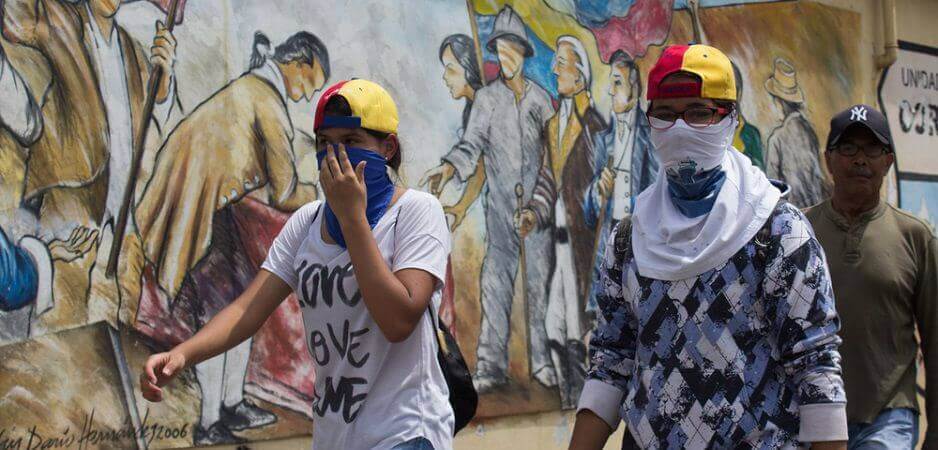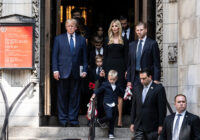As the Venezuelan political and economic crisis deepens following suspect elections, a group of experts discuss potential ways out of the morass.
Questions about what might be done to solve the economic and political crisis in Venezuela are increasingly urgent as the nation plunges deeper into the political and economic abyss following the highly contested election this week for a National Constituent Assembly. The election is ultimately aimed at altering the nation’s constitution in a way that many observers say would give President Nicolas Maduro dictatorial powers. The vote was followed immediately by charges of fraud, new US sanctions, swelling street protests, and a rejection of the results by most of Venezuela’s South and Central American neighbors.
To get a sense of what a potential solution to the Venezuelan crisis might look like — however difficult it might be to reach one — Knowledge@Wharton spoke with a number of experts, including: Dorothy Kronick, a professor of political science at Penn’s School of Arts & Sciences; William Burke-White, Penn Law professor and an expert on international law and global governance; and Jennifer McCoy, a professor of political science at Georgia State University and a specialist on Latin American politics. (McCoy and Kronick discussed ways Venezuela might be able to emerge from its current difficulties on the Knowledge@Wharton show on Wharton Business Radio on SiriusXM channel 111.)
Venezuela’s crisis has been growing more grave since March. Street protests have claimed more than 120 lives; the economy has contracted by 30% over four years; inflation, at 700%, is the highest in the world; and the currency has plunged from about 630 bolivars to the dollar in 2013 to 200,000. The result is that life is a daily struggle for most Venezuelans — unemployment is widespread and accompanied by dire shortages of food and medicine.
The almost daily street demonstrations “have been fueled by opposition to what a majority of Venezuelans see as Maduro’s attacks on democratic institutions and violation of the constitution, and also in response to a massive economic contraction,” said Kronick. Meantime, though the economy is nearly at a “standstill,” McCoy, like many observers, sees “no prospect” of negotiations between the Maduro government and the various opposition forces.
Recent events, such as the election and the jailing of opposition leaders, push the sides even further apart, said Burke-White. “Moreover, Maduro feels emboldened after the election, making him less likely to compromise.” The president may hold the upper hand at the moment, “but ultimately these events push resolution to the streets, where he is less likely to be able to hold on to power forever.”
Burke-White further noted that Maduro “has managed to create a false political mandate through electoral manipulation, scare tactics and the usurpation of political authority. “On one hand, he is more powerful with the elections behind him, [but] on the other hand, most people in Venezuela and abroad can see through his ‘victory.’” In the meantime, the economic and social situation on the ground in Venezuela continues to worsen. “Eventually there will likely be a tipping point crossed that leads to regime collapse, irrespective of electoral mandate,” he predicted.
After the controversial election on July 30 to vote in Venezuela’s new assembly, which Maduro is directing to rewrite the nation’s constitution, the reaction from the international community was swift. The Trump administration called the Maduro government a “dictatorship” in a statement and slapped on new sanctions, freezing Maduro’s assets and ordering that “U.S. persons are prohibited from dealing with him.” Such isolation means the new assembly will not be able to maneuver in the international financial and commercial markets, said Kronick.
Brazil, Argentina, Colombia, Peru, Panama, Costa Rica and Chile have joined the European Union and the US in announcing that they do not recognize the results of the vote. Other reports have noted that Venezuela plans to exit the Organization of American States (OAS) after some members, including Canada and Mexico, said they would not recognize the authority of the assembly. Mercosur members Brazil, Argentina, Paraguay and Uruguay have already suspended Venezuela’s membership in the regional economic group because of concerns involving human rights.
The business impact of Venezuela’s instability has long been evident. US businesses that have used operations in Venezuela to supply the region have suspended operations or pulled out — most recently Coca Cola and GM. Airlines such as United Airlines and Delta have, in the last two months, suspended operations to Caracas. McCoy said US businesses lost confidence because of all the volatility and the dicy prospects for getting paid given the plunging Venezuelan currency.
Will Sanctions Work?
Kronick noted that the latest US sanctions targeting Maduro are different from the economic sanctions that President Donald Trump and Vice President Mike Pence had threatened before the latest vote. Those economic sanctions would have limited Venezuelan oil exports and the country’s ability to buy the light crude it badly needs, and they could have been “very damaging to the Venezuelan economy.”
Yet Kronick felt the targeted sanctions against Maduro play into his hands and enable him to describe the US president as “Emperor Trump” and as not wanting the democratic process to go forward in Venezuela. “Some people call these sanctions a gift for Maduro,” she said. “It helps his rhetoric of … blaming US interference for Venezuela’s problems.” She noted that in recent polls, 63% of Venezuelans said they opposed US economic sanctions against oil exports, including those opposed to the Maduro government.
McCoy said oil sanctions would be devastating for the local population. Already, the Venezuelan oil industry’s revenues have been hurt on two main fronts, she noted. One is a decline in oil prices, and the second is a decline in production and productive capacity. Meantime, Venezuela depends on the US to buy a third of its oil production. Venezuela also exports another major chunk of its oil production to China as repayment of loans, but that doesn’t bring in any revenues. Supplying domestic demand and discounted exports to the Caribbean countries like Cuba and other regional allies account for the remainder of its oil production.
A Way Out of the Storm?
According to Burke-White, the economic recovery has to start with political recovery. “There is zero reason for investment in the country at the moment. New sanctions make economic recovery all the harder.” A recovery requires regime transition, stable governance and new political leadership. “This is a moment to create the political pressures necessary for regime change,” he said.
McCoy said for any negotiations to occur, “both sides are going to need assurances that they will not be annihilated by the other — that there would be one victor and one loser” who is excluded from holding political office in the future or receiving economic benefits. Fears of a witch hunt, the lack of due process and the jailing of opponents just widen the political rift.
 In addition to the guarantee of due process and an independent judiciary, McCoy called for “some form of transitional justice” for some people, with reduced sentences in exchange for reparations, acknowledging responsibility for wrong actions or passing on information to help investigations. Kronick said the idea of transitional justice “may seem distasteful to some people, but maybe that is what is required.”
In addition to the guarantee of due process and an independent judiciary, McCoy called for “some form of transitional justice” for some people, with reduced sentences in exchange for reparations, acknowledging responsibility for wrong actions or passing on information to help investigations. Kronick said the idea of transitional justice “may seem distasteful to some people, but maybe that is what is required.”
Burke-White didn’t agree with the ideas of transitional justice. “Such grants of amnesty or advance pardons are extremely dangerous,” he said. “While they may be seen as promoting peace in the short term, they ultimately undermine the longer-term quest for justice and promote impunity. It is quite possible that the regime leadership could seek to leave the country in exile and thereby get some sense of at least temporary security from prosecution.”
Could an Interim Government Help?
McCoy said the most desirable formula would be to negotiate an interim government acceptable to both sides, but that would not be a political government in that it wouldn’t run for power in future elections. Instead, it would be tasked with working with the international community, which would provide help with arranging emergency aid and loans to help Venezuela re-stabilize the economy and renegotiate its foreign debt. “We have to focus not just on sticks and sanctions, but on incentives,” she said.
An interim government is one among several transition solutions that could work, said Burke-White. However, that calls for political preconditions such as Maduro being “willing to exit the stage and the opposition has to be able to be at the negotiating table.”
In Venezuela’s attempts to revive its economy, Russia and China hold important cards as lenders, said McCoy, adding that major debt repayments are coming up in November and in 2018. (Overall, foreign debt is estimated to be about $5 billion.) Any help in rescheduling those loan payments could ease efforts towards short-term economic recovery, said Burke-White. Such accommodation “is quite possible given that both China and Russia are looking to expand their political influence in the region,” he added. “However, it would mostly grant Maduro breathing space to consolidate power, rather than lead to any meaningful change in political or economic realities.”
*This article was originally published by Knowledge@Wharton, a partner institution of Fair Observer.]
The views expressed in this article are the author’s own and do not necessarily reflect Fair Observer’s editorial policy.
Photo Credit: Sebastorg / Shutterstock.com
Support Fair Observer
We rely on your support for our independence, diversity and quality.
For more than 10 years, Fair Observer has been free, fair and independent. No billionaire owns us, no advertisers control us. We are a reader-supported nonprofit. Unlike many other publications, we keep our content free for readers regardless of where they live or whether they can afford to pay. We have no paywalls and no ads.
In the post-truth era of fake news, echo chambers and filter bubbles, we publish a plurality of perspectives from around the world. Anyone can publish with us, but everyone goes through a rigorous editorial process. So, you get fact-checked, well-reasoned content instead of noise.
We publish 2,500+ voices from 90+ countries. We also conduct education and training programs
on subjects ranging from digital media and journalism to writing and critical thinking. This
doesn’t come cheap. Servers, editors, trainers and web developers cost
money.
Please consider supporting us on a regular basis as a recurring donor or a
sustaining member.
Will you support FO’s journalism?
We rely on your support for our independence, diversity and quality.






